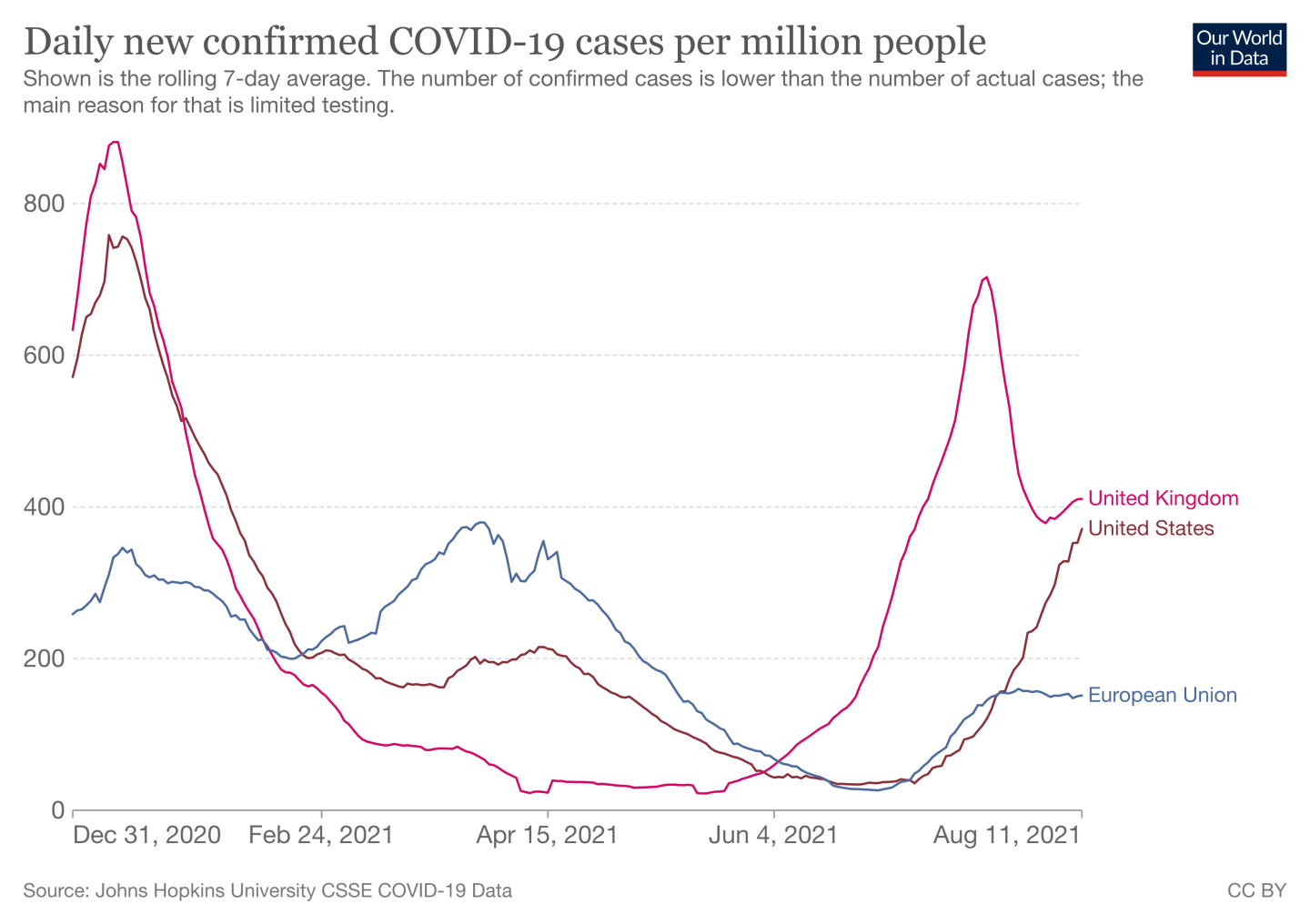For parents wary of sending their kids off to school, here’s a rare bit of comforting data: Fewer than one in 100 school students and staff in England tested positive for COVID-19 in June. And the capper: There was no mask mandate in the schools at the time.
That wasn’t just a noticeable drop from last autumn, it also came as Delta variant cases were peaking across not just England, but the whole of the United Kingdom.
The data comes from a study conducted by the U.K.’s Office for National Statistics (ONS), showing infection rates were lower in children attending school than in the greater population, suggesting that the great reopening of schools in September will not necessarily bring about another new wave of infections.
An estimated 0.27% of elementary school students, 0.42% of middle to high school students, and 0.27% of teachers tested positive for COVID-19 between June 14 and July 6. This is compared with autumn 2020, when around 1% of elementary school students and staff tested positive, while 1.22% of high school students and 1.64% of staff tested positive.
The ONS chalks up the drop in cases to “school gate” measures as well as the asymptomatic testing program, which required students to test themselves twice a week. That succeeded in keeping a higher number of COVID-19 infected students out of school, thus reducing the risk of infection.
Won’t be so easy this fall
However, things are due to change as the Boris Johnson government recently dropped its “bubble” rule, which had placed kids in consistent groups throughout classes and required that the whole group go home and self-isolate whenever one member of the bubble tested positive for COVID-19. Come September, schoolkids in England are free to mix and mingle as they did before the pandemic.
The English government has informed schools they may reintroduce bubbles in the autumn term, but it sounds as if they’d really prefer not to, saying any decision to revert to bubbles “would not be taken lightly.”
Despite the uncertain guidance, the latest is still highly significant for a country that has been particularly hard hit by the Delta variant. Furthermore, the U.K. is still not vaccinating children below the age of 15.
This is an “optimistic sign for those who want to convince parents and health ministers that it is safe to send kids back to school” next month, Jim Reid, a research strategist at [hotlink]Deutsche Bank,[/hotlink] wrote in an investor note this morning.
Mixed messages from the U.S.
The U.K., which was one the first countries to be hit hard by the Delta variant, has been viewed of late as a kind of case study in how the latest wave will progress elsewhere. As such, economists, public health officials, and educators the world over are watching the English—and wider U.K.—numbers with particular interest.

For the United States, the lessons learned from England may not be so applicable. In each of the 50 states, the policies around school reopenings this fall vary widely.
For example, Hawaii Gov. David Ige announced last week that all Department of Education staffers would be required to disclose their vaccination status or face weekly testing. California took it a step further, mandating yesterday that all staff who work in both public and private schools must be vaccinated or test routinely for the virus, Gov. Gavin Newsom announced.
On the other end of the spectrum is Florida. Despite the Centers for Disease Control recommending mask wearing in all U.S. schools, Florida Gov. Ron DeSantis has taken guidance in the opposite direction, banning school districts from instituting a mask mandate.
Most parents in the U.S. support masking kids in school. Some 63% of U.S. parents believe that schools should require indoor masking for students and staff who are unvaccinated, according to a survey by health care think tank Kaiser Family Foundation. However, unvaccinated adults are very wary of giving their child a COVID-19 vaccine, and around 5% of vaccinated parents say they “definitely” won’t vaccinate their children before school begins, while another 23% want to “wait and see” before making a decision.
The back and forth of testing and masks comes as Moderna announced plans to double the size of its under-12 vaccine trial, after U.S. regulators requested additional safety data.






